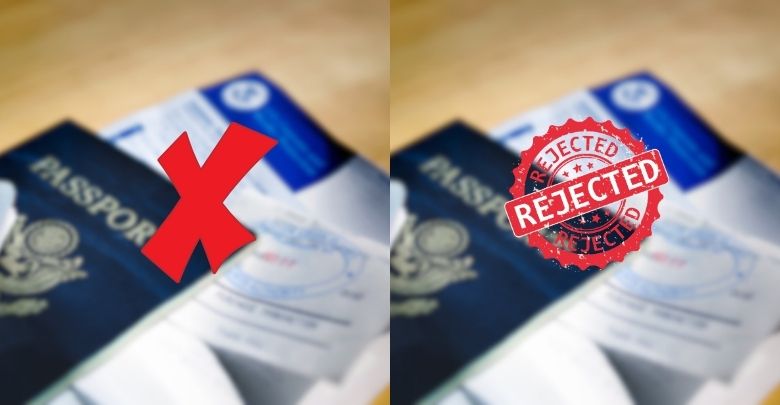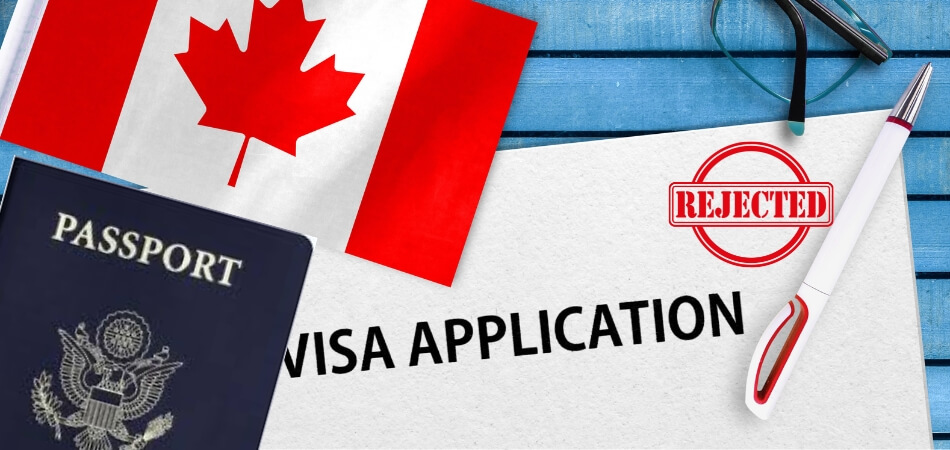Applicants seeking entry into foreign countries often face visa refusals and rejections. These outcomes can significantly impact travel plans and professional opportunities, often leaving individuals confused and uncertain about their next steps. This is where a question arises, “What is the difference between a conference visa refused and rejected?”
A visa refusal typically means that the application lacked sufficient information or did not meet certain criteria, allowing room for future attempts. In contrast, a visa rejection signifies a more permanent decision based on serious concerns about the applicant’s intentions or background, making it harder to overcome in subsequent applications.
Are you curious about the impact of these outcomes and how they can affect your future applications? By reading this article, you will uncover essential information about visa refusals and rejections, helping you handle the complexities of the application process with confidence.
Understanding Visa Terms: Refusal Vs. Rejection
When applying for a visa, understanding the distinctions between refusal and rejection is essential. Both outcomes can impact your ability to travel, but they arise from different circumstances. Let’s explore what each term means and their implications for applicants.

Visa Refusal
An application for a visa may be denied because of insufficient information or failure to meet specific criteria. This decision means that the applicant did not provide enough documentation or did not fulfill the necessary requirements for the visa. A refusal can be addressed, allowing individuals to rectify their applications for future attempts. Understanding the reasons behind a refusal is crucial for improving chances of approval later on.
Visa Rejection
The rejection of a visa indicates a more permanent decision based on an applicant’s background or eligibility. This can happen if there are serious concerns about the applicant’s intentions or history. For example, if someone wishes to attend an international conference in Canada 2024, a rejection might occur if there are doubts about their ties to their home country. Unlike refusals, rejections can be harder to appeal and may require a more substantial change in the applicant’s situation to overcome.
What is the Difference Between a Conference Visa Refused and Rejected?
Anyone applying to attend events abroad needs to understand the difference between a conference visa refused and rejected. Each outcome has unique implications, and recognizing these can help applicants navigate their options more effectively and improve future applications.
| Difference | Visa Refused | Visa Rejected |
| Nature of Decision | Typically a temporary setback for the applicant. | Often a permanent decision with significant implications. |
| Appeal Process | This can be addressed with additional documentation. | Usually more difficult to appeal effectively. |
| Impact on Future Applications | May allow reapplication with improvements. | Can limit future applications based on history. |
| Documentation Requirements | Usually requires more supporting documents. | This may require a substantial change in the situation. |
| Common Examples | Missing financial statements or invitations. | Previous visa violations or criminal history. |
| Response Time | Often quicker to resolve with corrections. | Typically involves longer waiting periods for resolution. |
| Communication from Authorities | Usually includes a list of missing items. | Often lacks clear reasoning, leading to confusion. |
| Advice for Applicants | Focus on providing complete and clear information. | Consider addressing underlying issues in applications. |
| Potential for Future Visa | Higher chance of successful reapplication. | Lower chances unless significant circumstances change. |
Therefore, recognizing the differences between a refused and rejected conference visa can guide applicants in their next steps. Understanding these nuances is essential for creating a more effective approach to future visa applications.
Common Reasons for Visa Refusals in Conference Applications
It’s important to understand the common reasons for conference visa refusal before applying. These factors often vary by country, but they typically involve around documentation, finances, and travel intentions. Here are some of the main reasons why visas are denied to applicants.
Incomplete or Inaccurate Documentation
One of the most common reasons for visa refusals is incomplete or incorrect documentation. Missing information, such as proof of invitation, accommodation, or financial backing, can raise concerns for immigration officers. Ensuring all necessary documents are provided, and thoroughly reviewed, is essential for a smooth application process.
Lack of Financial Evidence
Applicants must show they have enough financial resources to cover their trip. If there is insufficient proof of funds, it may lead to a refusal. Immigration authorities want to be sure that attendees won’t rely on public funds or face financial difficulties during their stay.
Weak Bonds to Home Country
Conference visa applicants need to prove strong connections to their home country, ensuring they will return after the event. Lack of such evidence, whether personal or professional, can increase the chances of refusal, especially when authorities suspect the applicant may have overstayed.
Insufficient Explanation of Conference Purpose
Providing a clear and detailed explanation of why attending the conference is necessary can make a big difference. Failing to explain the relevance of the event to the applicant’s professional or academic goals can lead to visa refusals. Applicants should highlight how the conference benefits them.
High Rejection Rates in Specific Countries
Some countries have high visa rejection rates due to strict immigration policies or frequent non-compliance by applicants. For example, many applicants are impacted by the reasons for high visa rejection rates in Canada. These include concerns about overstaying or fraudulent documentation, making it essential to follow these guidelines closely.
The application process can be strengthened by understanding these typical reasons for visa refusals. By addressing potential issues and ensuring complete, accurate information, individuals can improve their chances of a successful conference visa application.
What to Do if Your Conference Visa is Refused or Rejected?
Receiving a visa refusal or rejection can be disheartening, but it’s crucial to stay calm and take the appropriate steps to address the situation. Effective action can help you in either reapplying or appealing the decision. If you face this challenge, here’s what you can do.
Review the Refusal or Rejection Notice
Begin by thoroughly reviewing the notice provided by the visa authority. This document will outline the reasons for the decision, giving you a clear understanding of what needs to be addressed. Carefully read the feedback to identify any specific issues or missing information.
Gather Additional Documentation
Once you know the reasons for the refusal or rejection, gather any additional documents required to address these concerns. This may include updated financial records, more detailed invitations, or other relevant information. Ensure that all documents are accurate and complete.
Reapply or Appeal the Decision
Depending on the feedback and the nature of the decision, you may choose to reapply for the visa or appeal the refusal. Reapplying involves submitting a new application with corrected or additional information, while appealing may require following specific procedures outlined by the visa authority.
Seek Professional Assistance
If the process seems overwhelming, consider seeking help from a visa consultant or immigration lawyer. Professionals can offer valuable advice and assistance, ensuring that your application or appeal is handled correctly and effectively.
Consider Writing an Explanation Letter
In many cases, addressing the concerns directly through writing an explanation letter after visa refusal can be beneficial. This letter should clearly and concisely explain any issues and provide additional context or clarification. Make sure to address each point raised in the refusal notice.
Taking these steps can help resolve issues related to visa refusal or rejection. By reviewing the notice, providing additional documentation, and potentially seeking professional help, you increase your chances of a successful outcome.
Understanding the Impact of Visa Refusal on Future Applications
A visa refusal can have significant implications for future applications. Understanding these impacts is essential for anyone who plans to apply again. The effects can influence not only individual applications but also overall travel plans.
- Applicants with a refusal may be subjected to greater scrutiny by immigration authorities in the future. This can lead to higher chances of rejection in subsequent applications.
- It is often more difficult for applicants to provide the required documentation after a refusal. The burden of proof increases, requiring more detailed and accurate information than before.
- Some countries may impose longer waiting periods between applications after a refusal. This delay can affect travel plans and professional opportunities that require timely attendance at events or conferences.
- Visa refusals can increase anxiety and uncertainty about the application process. Applicants may feel discouraged or overwhelmed, impacting their confidence in future submissions.
- A history of refusals can lead to increased scrutiny from border officials upon arrival, even if a subsequent visa is granted. This can complicate the travel experience and cause additional stress.
- Some applicants may need to change their travel plans or conferences if they face a visa refusal. This can lead to missed opportunities and hinder professional development in their field.
- Understanding the reasons for a refusal is crucial for improvement in future applications. Applicants must reflect on past mistakes to ensure better preparation and increased chances of approval next time.
The impact of a visa refusal can extend beyond a single application, affecting future travel and professional opportunities. Being aware of these implications can help applicants get through the process more effectively.
FAQs for What is the Difference Between a Conference Visa Refused and Rejected?
We’ll answer the most common questions about the difference between a refusal and a rejection of a conference visa in this section. Understanding these distinctions can help applicants prepare their future applications with greater confidence and clarity. Here are some key questions and answers to guide you.
What Factors Lead to Conference Visa Refusal?
Several factors can lead to a conference visa refusal. Insufficient documentation, unclear travel intentions, or financial instability are common reasons. Applicants must provide comprehensive information, including proof of attendance, accommodation, and funds to cover the trip. Addressing these factors is essential for improving the chances of approval.
How Can an Applicant Overcome a Visa Refusal?
To overcome a visa refusal, applicants should carefully review the reasons outlined in the refusal notice. Gathering additional documentation that addresses these concerns is crucial. A well-prepared reapplication, along with a thorough explanation of changes made, can significantly improve the chances of approval on subsequent attempts.
Is There a Time Limit for Reapplying After a Visa Refusal?
While there is no universal time limit for reapplying after a visa refusal, applicants should take time to gather the necessary information and documentation before submitting a new application. It’s advisable to wait until all concerns are fully addressed, ensuring a more robust submission.
What Should an Applicant Do if Their Visa Is Rejected?
In the case of a visa rejection, applicants should closely examine the reasons given in the rejection notice. Unlike refusals, rejections often indicate more permanent issues related to the applicant’s background or intentions. Seeking professional assistance from immigration experts can help to resolve the situation more effectively.
Does a Visa Refusal Affect Your Ability to Travel on Other Visas?
A conference visa refusal doesn’t automatically affect other types of visa applications, such as tourist or business visas unless the refusal reasons involve fraud or security concerns, which could impact overall trustworthiness.
End Note
Any conference attendees planning to attend an international conference should familiarize themselves with the nuances surrounding visa applications. There is a big difference between a rejection and a refusal based on the implications of each: a refusal enables improvements in future attempts, while a rejection presents more significant challenges. So, what is the difference between a conference visa refused and rejected? A refusal can often be remedied, whereas a rejection suggests more permanent concerns about eligibility.
As you proceed through your visa application process, remember to gather all necessary documentation, clearly articulate your intentions, and ensure your application meets the required criteria. Taking these steps can significantly enhance your chances of success. Best of luck with your efforts, and may your future applications lead to fruitful opportunities!







